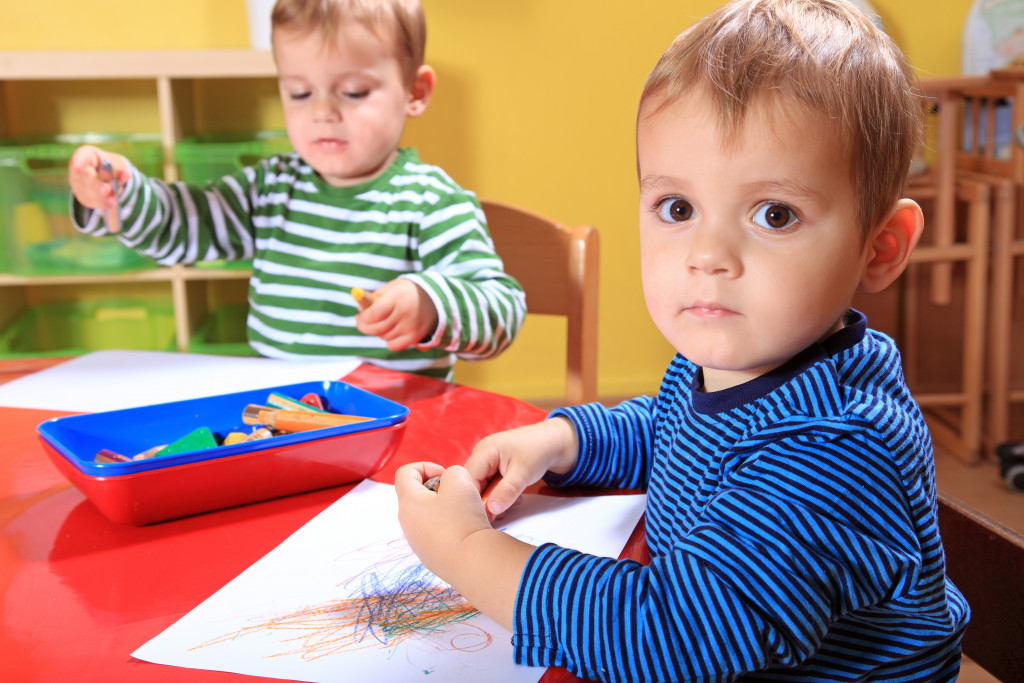As a mother, you want what is best for your child. You want them to be happy and to excel in whatever they put their minds to. While you may not be able to control everything, there are some things that you can do to set your child up for success. Here are the most important things your four-year-old needs to learn for better development:
How to share
At four years old, your child is starting to become more aware of the world around them and their place in it. One of the concepts they will need to learn about is sharing. Sharing is important because it helps people get along with others and consider their feelings. It can be hard for young children to understand why they need to share, but you can do a few things to help them learn.
First, explain why sharing is important. You can tell them that when we share, it shows that we care about other people and that we want to make sure everyone has a turn. Second, model sharing yourself. When you’re eating a snack, offer some to your child and take turns taking bites. Finally, praise your child when they do share. Let them know you’re proud of them for being thoughtful and considering others’ needs.
How to express emotions
It’s normal for your four-year-old to have big emotions. But sometimes, those emotions can be tough to deal with – especially for your little one. Helping your child learn how to express emotions can greatly help both of you. It can make frustrating moments less stressful and help your child feel heard and understood. Plus, it’s a skill that will benefit your child throughout his or her life. You can do a few things to help your four-year-old express emotions more effectively.
First, encourage your child to use words to describe his or her feelings. This will help your child put labels on his or her emotions, making them seem more manageable. Second, provide opportunities for your child to express emotions through creative outlets like art or play. This can be a great way for your child to release strong feelings healthily. Finally, model emotional expression for your child. When you’re feeling happy, sad, angry, or frustrated, talk about it with your child. This will show him or her that it’s okay to have all kinds of emotions – and that it’s okay to express them, too.

How to pay attention
Paying attention may not seem like something that needs to be taught, but it is an important skill for young children. After all, how can they learn anything if they are not paying attention? You can do a few things to help your four-year-old child learn how to pay attention.
First, ensure that you have their full attention before speaking. Get down to their level and make eye contact. Secondly, keep your instructions short and simple. If they try to process too much information at once, they will likely tune you out. And be patient. It may take a little while for them to learn how to focus, but with some practice, they will get it.
You should also consider enrolling your four-year-old in a pre-kindergarten program. Here, they will be able to practice these skills with other children in a structured environment. They’ll also learn important social skills, like how to share and pay attention to others. Investing in their early education will help set your child up for a bright future.
How movement helps the brain grow
As your four-year-old grows, they will learn best through movement and exploration. Studies have shown that physical activity helps the brain to grow and develop in important ways. For example, exercise has been shown to increase the production of new brain cells and improve the connections between existing cells.
In addition, movement helps to improve balance and coordination. These two skills are important for both academic success and everyday life. As your child begins to explore their world more, encourage them to get moving! Through active play, they will not only be getting the exercise they need, but they will also be giving their brains a boost.
The importance of sleep
A good night’s sleep is important for everyone, but it is especially crucial for young children. During sleep, the brain can process information from the day and form new memories. This helps children to learn and retain information more effectively. In addition, sleep deprivation can lead to irritability and poor focus, making it more difficult for children to perform well in school or other activities.
You can do a few simple things to help your child get a good night’s sleep. Establishing a regular bedtime routine can help signal the body that it is time to wind down for the night. In addition, limiting screen time before bed and creating a calm sleeping environment can also promote better sleep.
It is important for mothers to be aware of the different ways in which they can help their four-year-old learn and grow. By providing opportunities for sharing, emotional expression, paying attention, and moving their bodies, children will be more prepared for kindergarten and beyond. Additionally, a good night’s sleep is crucial for optimal brain development. With a little effort, your four-year-old can develop into a happy and healthy child!




